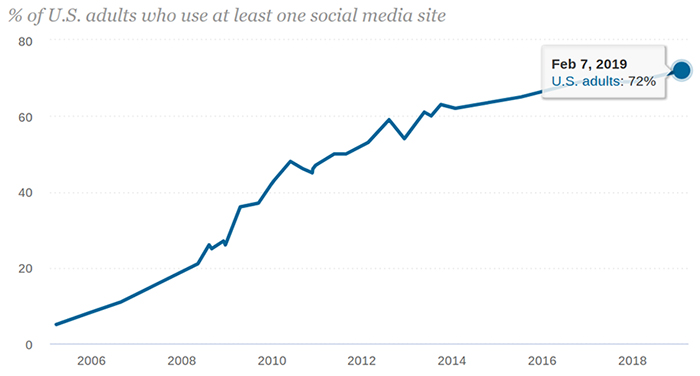How Agriculture Businesses Can Grow Sales Through Digital Marketing and Social Media
Most businesses would have a hard time thriving in 2020 without tapping into the power of the Internet and digital marketing. While agriculture businesses have operated for years without social media and other online channels, utilizing digital channels is simply the best way to compete in today's marketplace.
Social Media
Generally speaking, most businesses have come to the realization by now that social media is not to be ignored. For agriculture businesses, it's a vital part of the marketing landscape.
Timothy Wier at Farm Market ID writes1, "Agribusinesses who don’t use social in their marketing and sales efforts are going to be fighting an uphill battle for industry relevance. Whether they’re conscious of it or not, customers are going to form their opinion of your business based on what they see – or don’t see – on social. If you want them to have a positive impression of your brand, products or services, then invest time in cultivating a healthy online community and high-quality, valuable content."
Social media has, of course, grown significantly over the last decade. The following graph, last updated less than a year ago, shows just how prevalent it has become here in the U.S. among adults.

Image via Pew Research
You need to be using the major social platforms, including Facebook, Twitter, and Instagram. These will help you with visibility and connection with other farmers, consumers, or whomever you're trying to reach. Agriculture businesses can strongly benefit from YouTube, as well. Upload compelling videos that further help to boost your brand and reputation. As an added bonus, Google loves YouTube videos and often shows them to its users in search results.
Farmer ID2 offers these four valuable tips: “Share content your customers will find interesting. Talk about the goings on of your company. Mention upcoming offers. Offer content that will drive them to convert.”
Search
Search is one of the most important online channels for any business hoping to grow their sales. For starters, you'll need to focus on the local aspect of search engine marketing, which means claiming and verifying your business on Google, and implementing local search engine optimization (SEO) strategies and paying for Google search ads (AdWords).
Beyond that, it's also a good idea to use general SEO best practices so that you frequently appear in search results when consumers are Googling. There are many tactics and tips to keep in mind (which is why you should consult with an SEO expert), the best advice here is to create great content for your website that the search engines can index and show users who search relevant queries.
As you're creating your great website content, you can also share it in email newsletters for subscribers who are interested in your business. Newsletters can keep your brand in people's minds and remind them of the quality products/services you provide. While email marketing comes with its own set of challenges (be sure to research best practices in this area, as well), it can be an extremely effective way to grow your audience and increase traffic to your website, which will ideally lead to more sales.
When dealing with digital marketing, one of the most important things to remember is that the landscape is always changing, and it never gets less competitive. You've never had more or better marketing tools at your disposal, but the breadth of what's out there can be overwhelming. It is strongly recommended that you consult with people who dedicate their professional lives to digital marketing.
1 https://blog.farmmarketid.com/blog/how-farmers-use-social-media
2 https://blog.farmmarketid.com/blog/social-media-in-agriculture



